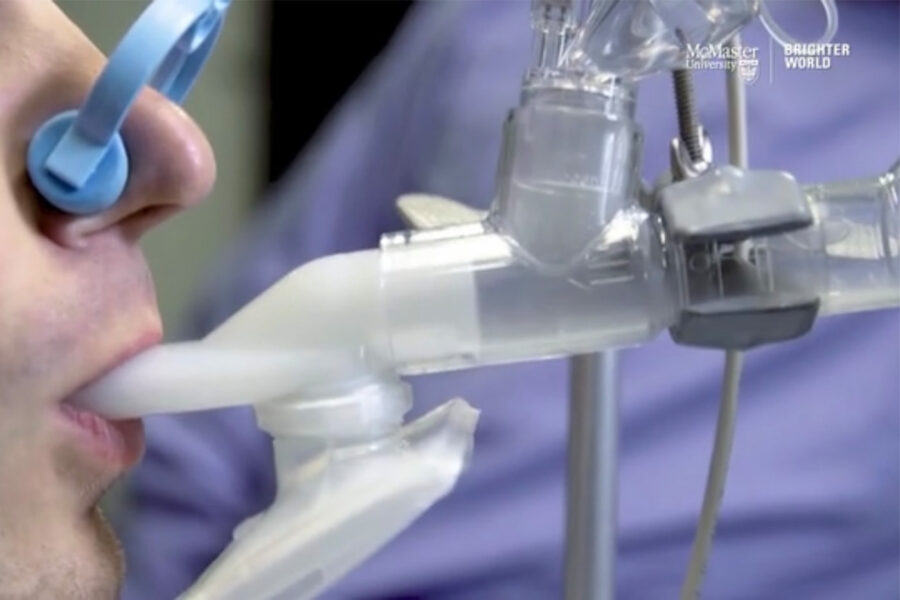
McMaster University researchers develop inhaled COVID-19 vaccine
- Michael Kras
- 15 Feb 2022
The brilliant scientists and researchers at Hamilton’s McMaster University have developed an inhaled form of vaccine against COVID-19 that is yielding promising results.
A release from the university reports that the inhaled vaccine targets the lungs and upper airways where respiratory viruses first enter the body, and is therefore “far more effective at inducing a protective immune response.”
Research from @MacGlobalNexus confirms that inhaled COVID-19 vaccines are even more effective than injected ones because they target the lungs and upper airways, where respiratory viruses first enter the body. https://t.co/UqR53HMQLK pic.twitter.com/T9qBSPrVLk
— McMaster University (@McMasterU) February 9, 2022
This inhaled vaccine, rather than a traditional injection, is also said to provide “broad, long-lasting protection” against the original strain of SARS-CoV-2 and subsequent variants of concern.
“We wanted, first and foremost, to design a vaccine that would work well against any variant,” said Matthew Miller, the study’s co-lead author and an associate professor at McMaster’s Michael G. DeGroote Institute for Infectious Disease Research.
A phase one clinical trial is currently underway to evaluate inhaled aerosol vaccines in health adults who have previously received two doses of an existing mRNA vaccine.
The release explains that McMaster’s inhaled vaccine is effective against variants of concern because it targets three parts of the virus, whereas the existing mRNA vaccines only target the spike protein, which itself has shown an outstanding ability to mutate.
There’s also the promising chance that the vaccine could provide additional protection against viruses other than COVID-19.
“We have revealed in our report that besides neutralizing antibodies and T cell immunity, the vaccine delivered into the lungs stimulates a unique form of immunity known as trained innate immunity, which is able to provide very broad protection against many lung pathogens besides SARS-CoV-2,” said Zhou Xing, a professor at the McMaster Immunology Research Centre and Department of Medicine and a co-lead author of the study.
Read the full release here.
Comments 0
There are no comments


Add comment